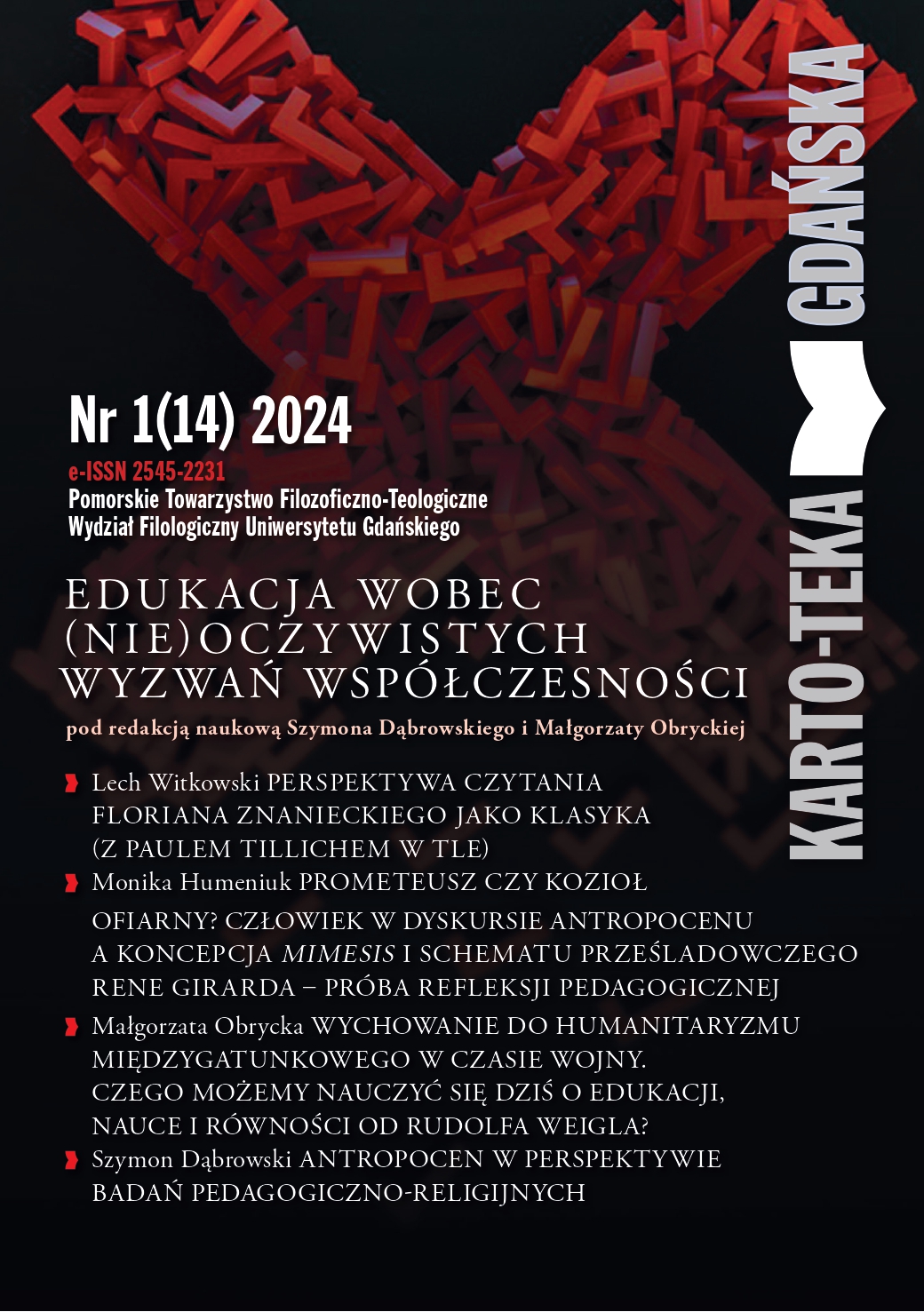Philosophy as a School Subject Integrating Student Knowledge
Keywords:
philosophy as a school subject, systemic education, philosophy and other school subjects, upbringing, personal knowledge of pupils, knowledge integration, philosophical education, integrative models of teaching philosophy, Bertalanffy, StruveAbstract
The authoress of the article formulates and defends the thesis that contemporary modeling of teaching philosophy can be analyzed in a paradigm of integrating knowledge of pupils. In the first part of this article she describes the complexity of a problem of modeling the philosophical knowledge of a pupil. It is caused by a solid tradition which divides science and philosophy. In Kamińska’s opinion this tradition forms opinions among academics and practitioners, which determine the place of philosophy in relation to other school subjects. Authoress argues, that the ‘integrative knowledge’ model is able to execute the expectations of the employers according to social and intellectual abilities of their potential employees. To achieve this, she mentions the research on the expectations of the employers towards the professional competences of the graduates. Skills and abilities relating to the cultural and social roles need philosophical competences like analytical and effective thinking, model operating, logical and moral skills of graduates.
The main theoretical basis of the presented model are Bertalanffy’s methodology, Paul Hirst’s and Joseph Schwab’s pedagogical conceptions which relate to contents of didactic structure used in school practice and substantial structures of relevant scientific knowledge. Furthermore, it is also based on Henryk Struve’s conceptions of stages of development of philosophical skills.
The second part of this article is dedicated to practical aspects. Authoress shows in examples the possibility of implementation of this model to school practice.
Downloads
References
Andrałojć M. A., Butler D., Sławecki B., Urbaniak M., Stopień dostosowania umiejętności studentów do potrzeb przyszłych pracodawców. Raport metodyczny, Uniwersytet Ekonomiczny w Poznaniu, Poznań 2011.
Gofron B., Systemowe podstawy doboru treści kształcenia w filozofii, Wydawnictwo WSP w Częstochowie, Częstochowa 1997.
Hirst P.H., Liberal Education and the Nature of Knowledge, [w:] tenże, Knowledge and Curriculum: A Collection of Philosophical Papers, Routledge and Kegan Paul, London 1974, s. 44.
Struve H., Uzdolnienie i rozwój umysłu filozoficznego, Warszawa 1932.
Tylutka A., Wyniki badań projektu: „Oczekiwania pracodawców względem kompetencji zawodowych – co robić na studiach, aby zdobyć kompetencje wymagane przez pracodawców?” Badania Manpower Polska: Projekt „Diagnoza i rozwój kompetencji wyznacznikiem sukcesu na rynku pracy” współfinansowany przez Unię Europejską w ramach Europejskiego Funduszu Społecznego, https://www. kariery.uek.krakow.pl.

 Academic Scientific Journals
Academic Scientific Journals

